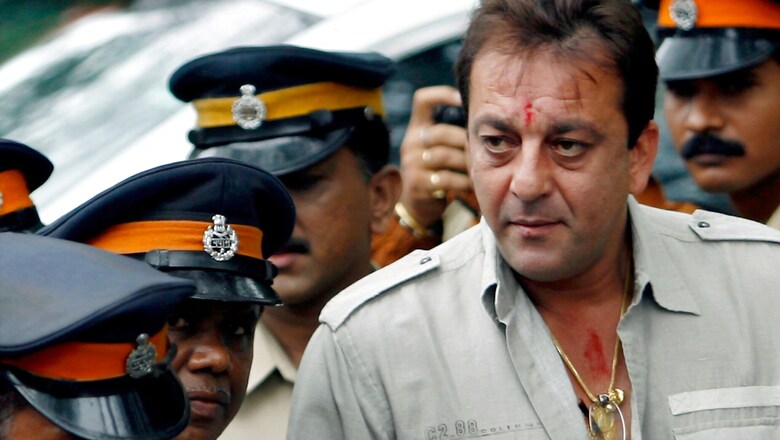
views
In a setback for Sanjay Dutt, Maharashtra Governor Chennamaneni Vidyasagar Rao has rejected the pardon plea filed for the actor in the 1993 Bombay blasts case. The plea was filed by former Press Council of India chief Justice Markandey Katju in 2013.
Katju had sought pardon for Dutt under Article 161 of the Constitution saying that he had not been found guilty of having played a role in the 1993 blasts and had suffered a lot.
Katju had said the Supreme Court, having found that Sanjay Dutt had in his possession a prohibited weapon without a licence, awarded him the minimum imprisonment which was prescribed under law.
"Section 25 (1(A) of the Arms Act states that if a person has in his possession a prohibited weapon without a licence, he shall be awarded punishment of not less than 5 years imprisonment and not more than 10 years," Katju had said.
He had also stated that the power of pardon under Article 161 by the Constitution is different from judicial power as the Governor or the President can grant pardon or reduce the sentence of the court even if a minimum is prescribed. "Hence, there is no doubt that the Governor can grant pardon/reduce the sentence," he had said.
He said the Supreme Court had not found Dutt guilty for the 1993 bomb blasts but only found him guilty of having in his possession a prohibited weapon without licence. "Surely, this is a lesser offence than murder. When the Governor of Maharashtra granted pardon to Nanavati, surely he can grant pardon to Sanjay," Katju had said.
He had also mentioned that though Dutt had committed an offence there are extenuating circumstances like that the event happened 20 years ago. "During this period, Sanjay suffered a lot and had a cloud hovering over his head throughout. He had to undergo various tribulations and indignities during this period. He had to go to court often, he had to take the permission of the court for foreign shootings, he could not get bank loans, etc," Katju had claimed.




















Comments
0 comment